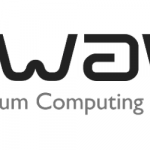HBR: Quantum Computing Is Coming & What Can It Do?

(HarvardBusinessReview) Quantum technology is approaching the mainstream. Just as classical computers reduced the cost of arithmetic, quantum presents a similar cost reduction to calculating daunting combinatoric problems.
Quantum translates, in the world of commercial computing, to machines and software that can, in principle, do many of the things that classical digital computers can and in addition do one big thing classical computers can’t: perform combinatorics calculations quickly. Those are:
- Chemical and biological engineering. Chemical and biological engineering involves the motion and interaction of subatomic particles. As molecules get more complex, the number of possible configurations grows exponentially. It becomes a combinatorics calculation, suitable for a quantum computer. With the emerging feasibility of quantum simulations, which helps predict the properties of new molecules, engineers will be able to consider molecule configurations that would otherwise be challenging to model.
- Cybersecurity. Combinatorics have been central to encryption for over a thousand years. Al-Khalil’s 8th century Book of Cryptographic Messages looked at permutations and combinations of words. Today’s encryption is still built on combinatorics. With quantum computing, however, cracking encryption becomes much easier, which poses a threat to data security.
- Artificial intelligence. Quantum computing potentially opens up new opportunities in artificial intelligence, which often involves the combinatoric processing of very large quantities of data in order to make better predictions and decisions. A growing research field in quantum machine learning identifies ways that quantum algorithms can enable faster AI.
- Financial services. Finance was one of the earliest domains to embrace Big Data. And much of the science behind the pricing of complex assets — such as stock options — involves combinatoric calculation. Computing speed has long been a source of advantage in financial markets.
- Complex manufacturing. Quantum computers can be used in taking large manufacturing data sets on operational failures and translating them to combinatoric challenges that, when paired with a quantum-inspired algorithm, can identify which part of a complex manufacturing process contributed to incidents of product failure.
NOTE: The Authors of the original HBR article summarized here are:
Francesco Bova is a professor at the University of Toronto’s Rotman School of Management in Toronto and is the academic lead and lab economist for the quantum stream in Rotman’s Creative Destruction Lab.
























